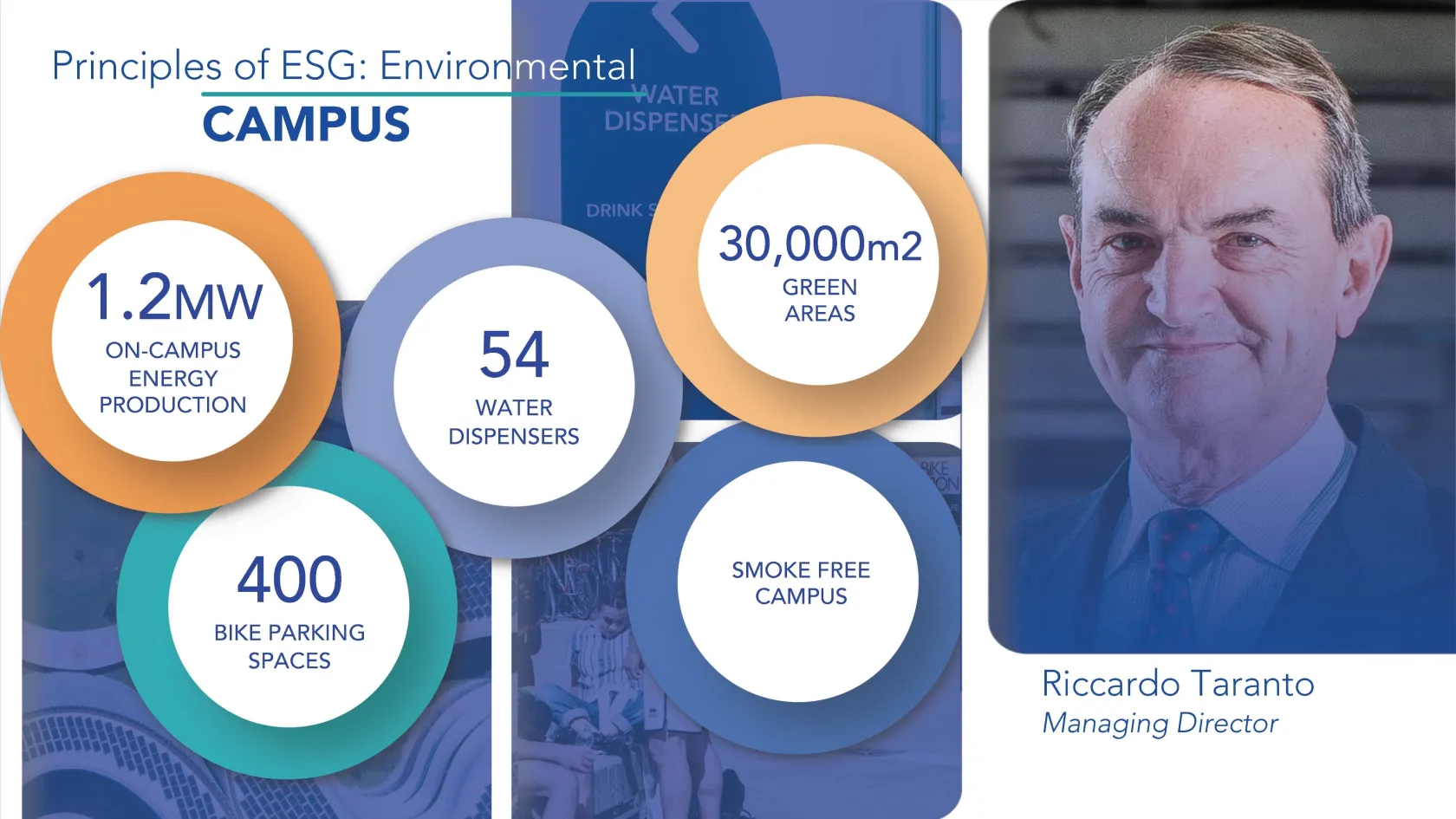
A Fully Sustainable Bocconi, Even During Covid
610 scientific publications throughout the year, with 122 of those dedicated to sustainability issues, the establishment of the Covid Crisis Lab to do research on the consequences of the pandemic and the SDA Bocconi eSG Lab to help SMEs on the road to sustainability, in addition to a teaching portfolio that offered 88 specific courses on sustainability. There are also initiatives to promote diversity and inclusion and further reduce the campus's environmental impact, and new environmental certifications will be obtained. The snapshot captured in Bocconi University's 2020 Sustainability Report, promoted and coordinated by the University's Sustainability Committee, is a Bocconi that, despite the terrible situation of the pandemic, has picked up the pace on its path towards sustainability, laying the foundations for its future. This is all disclosed in the guidelines of the University's Strategic Plan 2021-2025 and Vision 2030, approved at the end of 2020.
"We have gotten through this year by putting in place all the resources needed to ensure maximum safety for everyone. This has been demonstrated through our obtaining the Biosafety Trust Certification, which provides best practices to minimize the risks of spreading pandemics in gathering places. We also saw what was happening as an opportunity to experience something truly new compared to the past," explains Bocconi Managing Director Riccardo Taranto. "This situation is the driving force for an increasingly innovative and sustainable Bocconi."
Bocconi's sustainability challenges, directly linked to several of the Sustainable Development Goals of the United Nations 2030 Agenda, are based on the three concepts of Empower (inspiring future agents of sustainable change), Embrace (continuing to develop a sustainable and socially responsible Bocconi) and Engage (being key players in sustainability challenges).
In terms of excellence in the creation and dissemination of knowledge, the numbers on academic research and teaching are of primary importance. The number of ERCs hosted by the University increased to 40 (22 are currently active), while 19 out of 35 research projects related to sustainability issues were launched in 2020, and 122 publications out of 610 focused on these topics. There were almost 3,800 teaching hours on subjects related to sustainability, with 5,361 students enrolled in specific courses, and 861 theses written on the topic.
In terms of environmental sustainability, in addition to the Biosafety Trust Certification obtained in 2020, the LEED Platinum certification for the new SDA Bocconi headquarters was added in 2021, which applies to the entire life cycle of the building, from design to construction. The ISO 50001 Energy Management certification was also renewed, thanks to policies adopted by the university for the continuous improvement of the energy efficiency of the campus. This certification was first obtained in 2017. Bocconi is also equipped with a solar panel system that guarantees the self-production of 1.2MW of electricity. In the past year projects have been launched to promote sustainable mobility (the campus has 400 bike parking spaces) and food and healthy lifestyle initiatives such as the elimination of disposable plastic products, the replacement of vending machines with low energy consumption models and the simultaneous transition from junk food products to healthy products. Finally, at the beginning of this year, the campus became smoke-free and 5 outside areas reserved for smokers were set up.
The path to sustainable development also requires representing a strong and authoritative partner both for local communities and globally: on this front, Bocconi is among the five scientific partner universities of Business 20 (B20), the official G20 dialogue forum with the global business community, and is one of the eight European institutes that make up CIVICA, the European University of Social Sciences, selected in 2019 by the European Commission as one of the pilot European universities.